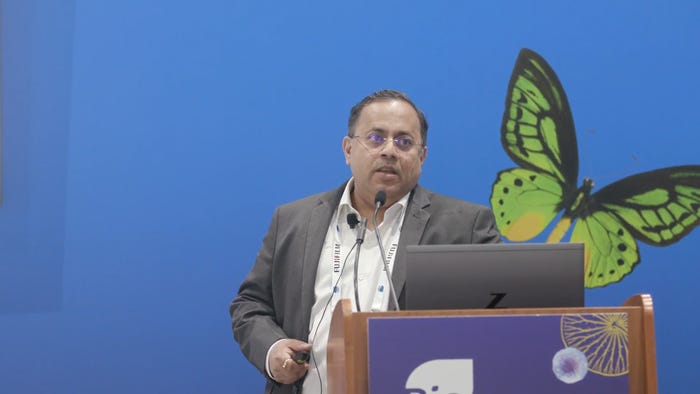Opportunities and Challenges in Developing a Fully Connected Continuous Manufacturing Process for BiologicsOpportunities and Challenges in Developing a Fully Connected Continuous Manufacturing Process for Biologics
July 31, 2024

Himanshu Gadgil, chief executive officer, Enzene Inc., USA
Enzene began operations in 2015 based on an important question: How do we democratize access to lifesaving medicines in India? Whereas a gram of gold costs about US$80–90, a purified monoclonal antibody (mAb) drug substance can range from $150/g to $450/g. Cancer therapies can cost $10,000— 20,000/g. Consider that 99.8% of Indian households earn under $2,000 per month and that 22% earn under $60 per month. Almost no patients in India can afford lifesaving treatments, and drug manufacturers struggle to maintain production in Indian facilities. Biosimilars and other biologics are produced in only small quantities because of their high fixed costs.
Key contributors to fixed costs include utilities, facility maintenance, employee salaries, facility amortization, and equipment depreciation. Amortization and depreciation specifically can contribute up to 50–60% of fixed costs for biologics production. Gadgil noted that in such a high-cost environment, maintaining a small footprint is one of the only ways to invest in and manage manufacturing facilities. For example, fed-batch systems are often clunky and occupy large facility footprints, whereas continuous manufacturing systems occupy smaller spaces and require less capital investment. Gadgil stressed the importance of lowering carbon footprints from a sustainability perspective as well: “Last week, temperatures in Delhi were 46 °C. Whether we agree with it or not, [climate change] is happening.”
Gadgil introduced the EnzeneX fully connected continuous manufacturing (FCCM) platform for reduced costs and footprints. The EnzeneX FCCM process covers all manufacturing phases from perfusion cell culture to drug-substance production. Clients using the EnzeneX FCCM process have noted up to 80% reduction of production costs and 10× higher productivity compared with the costs and productivity of fed-batch manufacturing. That productivity comes from 5–10× higher cell densities per liter and improved cell growth profiles. Standard fed-batch processes produce
10 g of product in 15 days, whereas a continuous process such as the EnzeneX FCCM procedure can produce 80 g of product in the same period.
Enzene’s manufacturing site demonstrates how facilities can be constructed to reduce carbon footprints. At 1,350 ft2, the facility produces 10 kg of commercial product per month. The company supplied over a million doses of three biosimilars in the Indian market in 2023. To help deliver medicines to Indian patients, Enzene transfers products to business partners at fees of <$10 per dose.
At the time of Gadgil’s presentation, the EnzeneX platform had been used in 31 client projects, most of which were based in the United States and Europe. It offers flexible designs, accommodating clinical-phase supply at good manufacturing practice (GMP) grade, at scales as low as 30 L and with variable bioreactor capacities. And the platform is progressing quickly from development to commercial manufacturing with fully validated methods. Onboarding for new projects is completed in eight weeks rather than the traditional duration of four to five months.
One client sought to produce a complex, humanized antibody. “Anything that is [humanized] is very, very unstable,” Gadgil noted, and although the client saw good initial expression, the molecule “fell apart” on day 15 in fed-batch processes because it had developed proteolytic sites. The client was producing only 3 g of product at a 50-L scale. Enzene developed an intermediate capture step that enabled the culture to accommodate higher cell densities while maintaining viability. When cells die in a solution, they secrete proteases that dissolve proteins in their medium. By implementing perfusion steps, harvest increased to 27 g at a 50-L scale while maintaining batch-to-batch consistency.
For future plans, Gadgil said that Enzene will try to democratize local contract development and manufacturing organization (CDMO) access for innovative therapies in the United States. Some 80% of all early stage innovation occurs in the United States, but US companies often struggle to find local partners elsewhere. Small companies especially struggle in that regard, and outsourcing manufacturing is a challenging endeavor. To help mitigate those challenges, Enzene plans to open a site in New Jersey in Q4 of 2024, where it will partner with local companies to provide continuous-manufacturing support.
Watch Online
See all presentations online from BPI Theater at BIO 2024.
You May Also Like






